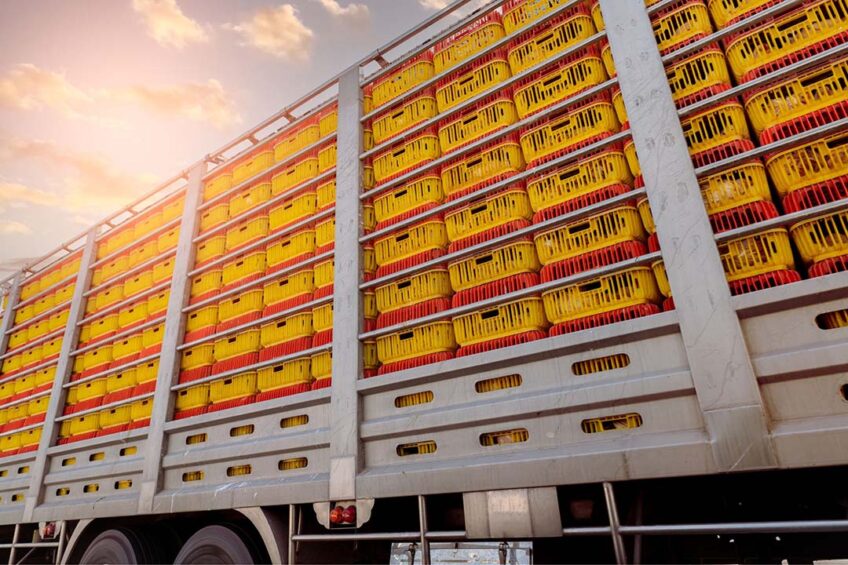Journeys of over 6 hours without water likely to affect poultry welfare

Research into the effects of poultry when deprived of water show that transporting birds for more than 6 hours is detrimental to welfare.
Birds are generally deprived of water when transported to slaughter, beginning shortly prior to catching of the first bird, through loading, time spent in lairage, up until the time of death. This desk research aimed to review existing knowledge on variables that could be useful in determining the length of time that birds may go without water when being transported before their welfare starts to deteriorate.
During transport, it is likely that birds experience a motivation to drink, and the lack of facilities may affect their emotions. But the research led by Professor K. E. Wurtz from the Department of Animal and Veterinary Sciences, Aarhus University, Denmark, said determining when drinking motivation reaches a threshold where welfare is negatively impacted is challenging.
Dehydration
In the absence of water, birds may over time experience dehydration which may be detected through physiological indicators as their body attempts to maintain homeostasis.
In poultry, plasma osmolality, arginine vasotocin and chloride have been suggested as being most suitable for assessing dehydration stemming from periods of water deprivation that correspond with typical transport durations due to their particular sensitivity during this period. While initial dehydration may not be associated with negative emotional states, it is likely to eventually lead to discomfort, but additional behavioural and motivational studies are necessary to infer when this starts.
The issue of transporting birds in extreme weather and associated welfare risks is becoming an increasingly pertinent issue in Europe.
Impacts of thermal conditions, genetics and the condition of the individual bird on the development of a dehydrated state were also assessed. This included environmental conditions (especially temperature and humidity), stocking density, and animal-based factors such as walking ability.
With the available literature, the review concludes that total transport duration of longer than 6 hours is likely associated with measurable physiological indicators of dehydration and may potentially be associated with negative emotional states. This was when using plasma chloride as an indicator. It is possible that this rise in chloride concentration is linked with thirst, though in this same study (Vanderhasselt et al, 2013), the plasma sodium concentration did not show significant increases until 24 hours of water deprivation. And in that study, the birds were not subjected to fasting as they would be under transport conditions.
Impact on hens vs broilers
The researchers’ conclusion is in line with the EFSA AHAW Panel where they concluded that when poultry are kept in their thermoneutral zone, water deprivation of periods longer than 6 hours (based on plasma chloride concentration), and for periods over 12 hours (based on creatine response) will lead to thirst.
The increased water necessary to produce eggs as compared to growth, coupled with typically longer journey times required to reach suitable slaughter plants, means that end-of-lay hens may be more likely to be negatively impacted by water deprivation upon arrival than broilers.
The issue of transporting birds in extreme weather and associated welfare risks is becoming an increasingly pertinent issue in Europe. Last month, the European Commission’s proposals on animal welfare during transport were unveiled. Laying down stricter rules for maximum journey times, temperature limits, minimum age of transport and how journeys are logged, the proposed legislation will have wide-ranging implications for sectors.
Water deprivation in poultry in connection with transport to slaughter – a review was published in the journal Poultry Science, ScienceDirect
The Poultry World Newsletter
Sign up for our newsletter and receive all our need-to-know content three times a week.
Join 31,000+ subscribers
Subscribe to our newsletter to stay updated about all the need-to-know content in the poultry sector, three times a week. Beheer
Beheer











 WP Admin
WP Admin  Bewerk bericht
Bewerk bericht